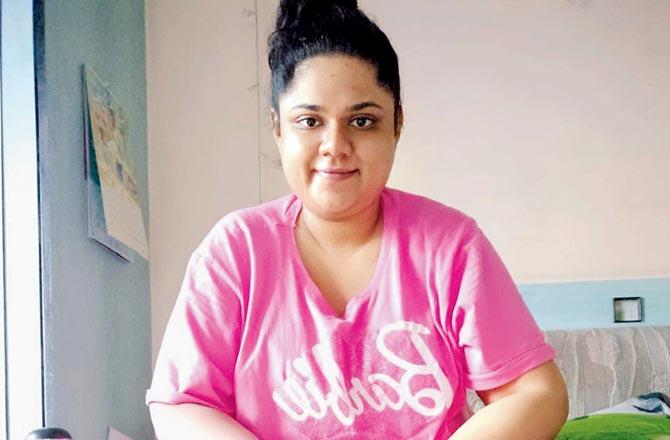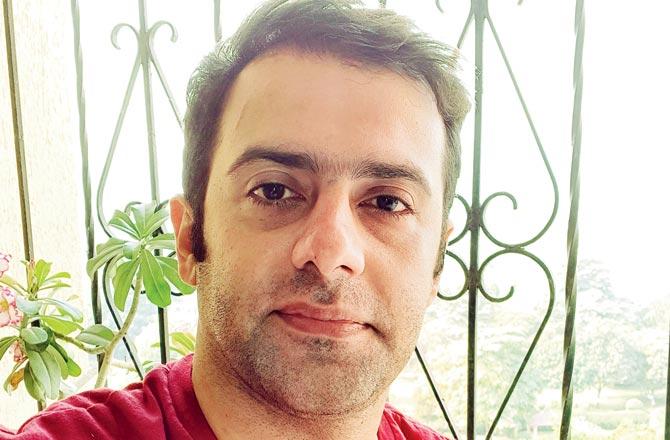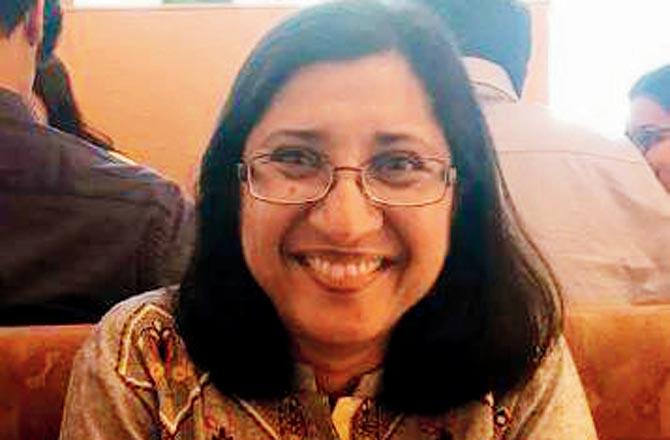Anxiety has led people to experience bizarre COVID-19 nightmares the world over, with a London museum and Canadian university "collecting" dreams as an oral history of the pandemic. Experts think this could be a good time for psychoanalysis.

'Everybody is infected except my child and I; I'm desperate for help' - Poonam Jhaveri Gandhi, entrepreneur
In the initial months of the Coronavirus-induced lockdown, radio jockey Sardar Nasir Ali Khan from Srinagar, was among those tirelessly volunteering to arrange necessities for the underprivileged and helping patients access healthcare. "During this time, an acquaintance, who was infected with COVID-19, passed away. He was an elderly man with comorbidities. It got me thinking about my parents' mortality. They, too, suffer from diabetes and hypertension." Worried that he might transmit the virus to them, Khan stopped stepping out of home. What compounded the anxiety were recurrent dreams, where he'd find himself in a hospital, while his parents were being treated for COVID-19. Khan says the nightmares would add a gloomy spin to his day and lead to arguments at home. "My dad would go for an evening walk. I asked him to stop it. He found it absurd and we'd end up arguing over it."
ADVERTISEMENT
Khan finally broached the subject with a psychologist friend, who told him to avoid doom scrolling, the tendency to compulsively surf through bad news.

'I'd see myself in a hospital, while my parents were being treated for COVID-19' - Sardar Nasir Khan, RJ
Eight months later, Khan is in a better place. He says the frequency of the dreams has reduced. Although he can't drop discussing the subject on radio given its relevance, he tries to talk about lighter and fun topics. "I think it's working."
Incidentally, dreams related to the pandemic are seeing a significant surge the world over. Hashtags like #Coronavirusdreams and #lockdownnightmares began appearing on social media as early as April when it became clear that COVID-19 dreams are becoming remarkably common. Deirdre Barrett, assistant professor at Harvard University and editor-in-chief of the journal Dreaming, initiated a COVID-19 dreams survey online. She surveyed 2,888 men and women between March 23 and July 15. About 2,000 of the respondents were American, with the others hailing from 85 countries. Barrett found that people reported recalling more dreams during the pandemic compared to pre-pandemic. Two artists from San Francisco, Erin and Grace Gravley launched IDreamofCovid.com, a site archiving and illustrating pandemic dreams. And now, the Museum of London, in partnership with the Museum of Dreams based at Western University in Canada, is launching a research-led project seeking to collect the dreams of Londoners by recording testimonies of dreams from the pandemic. The project, titled Guardians of Sleep, will be the first time that dreams as raw encounters and personal testimonies will be collected by a museum. According to the Museum of London website, the project team aims to collect the dreams in the form of oral histories as part of the museum's ongoing Collecting COVID project, but also to explore what insight dreams might offer into mental health and ways of coping with external stress. The team is exhorting Londoners to share their pandemic dreams by January 15, 2021 on info@museumofdreams.org. Interviews will be conducted virtually in February.

'I was on a date with my celebrity crush, and found out he is infected' - Harshita Vaishnav, PR professional
Dr Jyoti Sangle, psychiatrist at Dr LH Hiranandani Hospital in Powai, says, "The pandemic hit us so suddenly and the pace at which it unleashed was unprecedented; we were unprepared." Dr Sangle says many mental health issues present themselves with sleep disturbances. "Anxiety, depression or sleep disorder can manifest as nightmares, which essentially is a symptom. It indicates that your fear of the pandemic and the uncertainty around it, are extremely high."
Wadala resident Hossain Najafi, 35, is admittedly a germaphobe and the pandemic has only worsened his fears. "I keep a thermometre next to me, gargle with Betadine 30 times a day and experience the urge to constantly wash my hands. By the time it's night, I feel like I've developed body ache and throat pain." Najafi has been experiencing dreams of being infected with COVID-19, and often wakes up drenched in sweat. Unlike pre-pandemic, when the memory of the dream would fade on waking, he says it's strangely vivid. "It haunts me for the rest of the day." Public relations professional Harshita Vaishnav concurs. "There's one dream in which I see myself on a date with a celebrity crush. We make love and the next thing I know, is that he has tested positive. It sounds funny when I narrate it, but at that point, it all feels so real." Vaishnav has chosen to home quarantine after experiencing flu-like symptoms.

'I saw myself infected; I would wake up sweating' - Hossain Najafi, content creator
Poonam Jhaveri Gandhi, founder of Stone Bridge Solutions, a recruitment agency, says she had a dream in which everybody around her is infected with the virus, except she and her child. "And I am trying my best to go get help. It felt dramatic and dystopian."
According to Mumbai-based dream interpreter Sheetal Shaparia, dreams are often laced with metaphoric imagery of angels, or aliens; sometimes, even monsters. "I've had patients tell me about how they've seen fairies discussing that the world is coming to an end. But one common dream is that they see themselves lying in the ICU with no help. The doctors have given up. They see themselves pass away, and become individual bubbles. I've heard this more in the case of patients who are battling comorbidities, because the fear psychosis is high." She advises that dreams be taken seriously. "They might include recurring symbols and messages worth paying attention to. And this might help you work through your real-life problems."

We make patients realise that they are not the only ones suffering, and it's only anxiety with COVID as a prefix. We also give them a perspective on what's true [about the virus] and not - Dr Jyoti Sangle
Dr Sangle says her treatment involves making them aware of the symptoms. "We make patients realise that they are not the only ones suffering, and it's only anxiety with COVID-19 as a prefix. If anxiety has a solution, this will too. We also give them a perspective on what's true [about the virus] and not." Mindfulness techniques and tools to increase psychological strength are also provided. "Most of the time, we're able to manage at least 50 per cent of them with psychological education. The rest require pharmacological intervention."

Sheetal Shaparia
Keep scrolling to read more news
Catch up on all the latest Mumbai news, crime news, current affairs, and a complete guide from food to things to do and events across Mumbai. Also download the new mid-day Android and iOS apps to get latest updates.
Mid-Day is now on Telegram. Click here to join our channel (@middayinfomedialtd) and stay updated with the latest news
 Subscribe today by clicking the link and stay updated with the latest news!" Click here!
Subscribe today by clicking the link and stay updated with the latest news!" Click here!






